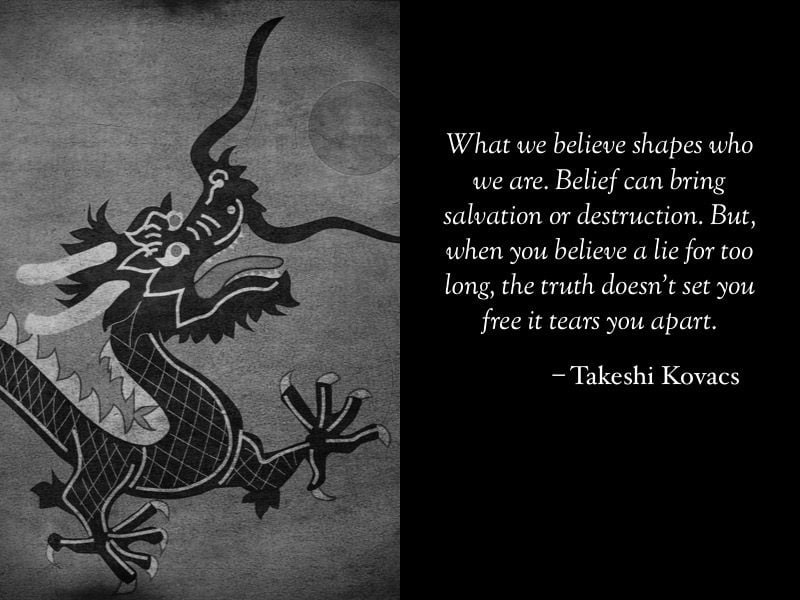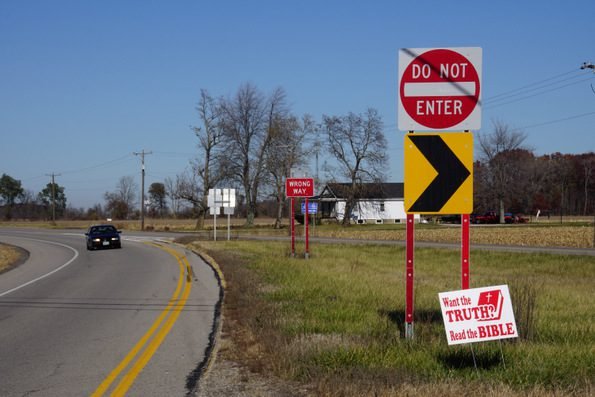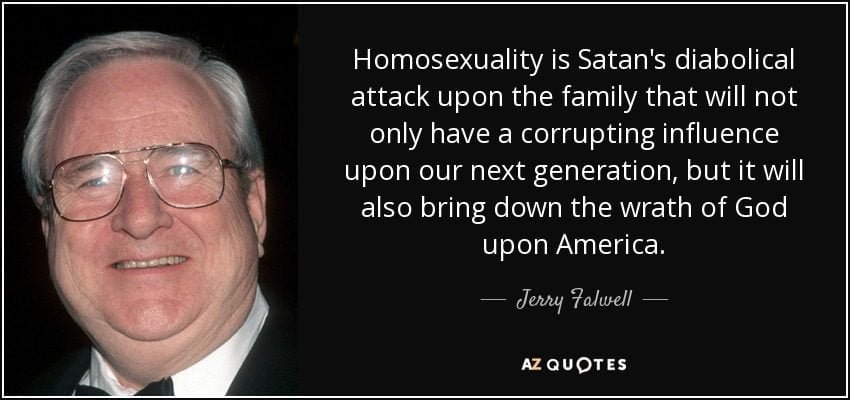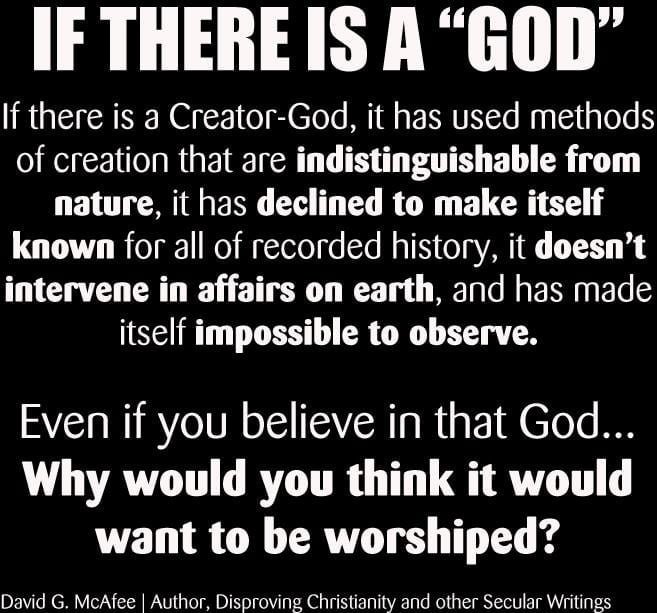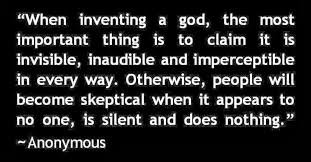
I paint with a broad brush in this post. If you are not one of “those” Evangelicals, then feel free to ignore what I have written. Or better yet, please explain to me why you are still an Evangelical. Surely, you don’t believe you can rescue Evangelicalism from itself.
My two favorite preachers are Jesse Custer (played by Dominic Cooper) on AMC’s hit series Preacher and Sidney Chambers (played by James Norton), an Anglican priest on Grantchester, a British period drama rebroadcast on PBS. Both men are doubters, preachers who understand the temptations of the flesh, and even, at times, give in to their wants and desires. In other words, unlike many of the self-righteous Pharisees who claim they speak for God, Custer and Chambers are worldly and quite human.
Both men question God’s existence, whether he answers prayer, and they wonder out loud if faith in God does more harm than good. Recently, I watched the four latest episodes of Grantchester. A repeating theme in Sidney Chambers’ struggles with faith is whether certain religious concepts (beliefs) cause suffering. Chambers is romantically involved with a woman, yet struggles with the vows he made to God and the church. This tension between desire and religious belief causes what Chambers calls suffering. It’s religion that says, thou shalt not have, yet supposedly the very God who says thou shalt not is the same God who created us with the desire for sexual intimacy and fulfillment. Chambers wants what he wants and, ignoring his beliefs, carries on a torrid affair. In the end, though, his commitment to the church and his desire to help others cause him to end his relationship with his lover. Whether Chambers will stay true to his calling until the end remains to be seen.
As I watched Grantchester, I pondered the notion that certain religious beliefs cause suffering, not only for ourselves, but for those who are close to us. I am an atheist, yet I readily admit that religious beliefs can and do provide many people with a sense of meaning, purpose, and direction. Viewed from an economic/cost-benefit perspective, Christians benefit from being part of a church and holding beliefs in common with their fellow congregants. As long as the benefits outweigh the costs, people will continue to engage in religious activities. It’s when the costs outweigh the benefits that people walk/run away from organized religion. When Christian faith becomes more of a hassle than it’s worth, people stop attending church; they stop giving their money to religious causes; they stop devoting time to religious exercises and activities.
Suppose you have a hamburger joint you love to frequent. You love their hamburgers, and their fries are awesome. Several times a week, you eat lunch at this hamburger joint, always using the drive-thru. One day, the restaurant staff messes up your order. You think, well, that happens from time to time. However, as time goes on, the staff continues to mess up your order — often putting cheese on your burger, even though you ask them not to. You complain to the manager, who says, I will make sure your order is made correctly. Here are a few coupons to compensate you for our mistakes. Great, you think. Problem solved. Unfortunately, the restaurant staff continues to mess up your order. And not only that, drive-thru wait times have doubled. One day, you wait fifteen minutes just to get your order, only to find out that for the millionth time they have put cheese on your hamburger. That it! you say. I am not going to eat here anymore. And off you go, searching for a new “best” hamburger in town. What happened? The costs (the wait time, wrong orders) outweighed the benefits (the “best” hamburger in town).
So it is with people and Christianity. For an increasing number of Americans, the costs of believing outweigh the benefits. Many Americans want to be viewed as kind, compassionate, thoughtful people. Who among us doesn’t want to be liked and respected? The problem for Evangelicals is that their commitment to Bible literalism and inerrancy forces them to defend behaviors and beliefs that are now considered immoral or indecent. In particular, younger Evangelicals have a big problem with how their pastors and churches treat LGBTQ people. They also have a problem with the increased politicization of the pulpit. Evangelical leaders are now calling for the abolishment of the Johnson Amendment — a regulation that forbids churches from partisan politicking as long as they are tax exempt. Taken as whole these things. and others, cast Evangelicalism in a bad light. Non-Evangelicals believe that Evangelicals are hateful bigots, even though many of them are not. Not wanting to be tarred with the same brush, many Evangelicals leave their churches — and some pastors leave their jobs, seeking out friendlier, more accepting churches. For these Evangelicals, the cost of believing outweighs the benefits.
The fastest growing sector of belief is that of the NONES — people who are atheists, agnostics, or who are indifferent towards religion. Evangelicals, in particular, are hemorrhaging younger adults. Evangelical talking heads are frantic over this generational loss. Well, except hardcore Fundamentalists. In their minds, quality is better than quantity. Sure it is. Just wait until the church pews are filled with aging, white-haired senior saints. You know, the Southern Baptist Convention. Once these people die off, then what? Without young adults, death is certain.
Gen X’ers and their parents love to bash Millennials; the snowflake generation they are called. Whatever shortcomings Millennials might have, one thing is for certain: they don’t have much love for organized religion. Why is this? Why are Millennials anywhere but church on Sundays? The blame squarely rests on the shoulders of Evangelicals and their cohorts in the Catholic Church, the Church of Jesus Christ of Latter-day Saints, and other conservative religious sects. These sects generally speak with one voice when it comes to issues such as premarital sex, homosexuality, abortion, same-sex marriage, and the matters affecting the LGBTQ community. It is this group who put Donald Trump in office, and most of the Millennials I have spoken to hate the President. They hate his treatment of undocumented immigrants, women, and LGBTQ people. They see his racism, bigotry, and support of the rich. And smack dab in the middle of this mess, Millennials see Evangelical Christianity.
Everywhere thoughtful people look, they see the suffering caused by religious beliefs. Evangelicals tell all who will listen that their God is the one true God and the Bible is the inspired, inerrant, infallible Word of God. It is in the Bible that God — not man — sets forth how humans are to live. Never mind the fact that the last words of the Bible were written two thousand years ago. In the minds of Evangelicals, the words of the Bible are as fresh and relevant the latest New York Times bestseller. They have convinced themselves that the Bible is unique, that it is different from all other books. Its words are inexhaustible. According to Evangelicals, someone can read the Bible from cover to cover hundreds of times and never exhaust the wealth of materials found within its pages. If you only own one book, Evangelicals say, let it be the B-i-b-l-e.
What suffering, you ask, is caused by Evangelical religious beliefs? Beliefs are benign, hurting no one, many Evangelicals think. Tell that to LGBTQ people who have been hounded and attacked by Evangelicals, all for demanding equal protection under the law and the same civil rights heterosexuals have. Tell that to Transgender people who have faced attack and ridicule over which bathroom they use. Tell that to pregnant women who want to terminate their pregnancy but can’t have one because Evangelicals have closed down clinics and defunded Planned Parenthood. Tell that to people who want to die with dignity but can’t thanks to Evangelical opposition to euthanasia. Worse yet, Evangelicals are generally war-mongers, supporters of the NRA’s interpretation of the Second Amendment, anti-immigrant, and anti-social safety net. It seems that the only lives Evangelicals care about are those still in the womb. Perhaps it would be better for me to point out which Evangelical beliefs don’t cause suffering and harm. Certainly there are teaching the Bible worthy of emulation and practice. The Sermon on the Mount comes to mind and does Matthew. Imagine how differently non-Christians might view Evangelicals if they dared to actually walk in the footsteps of the Jesus they say they love and follow?
Twenty-first century Evangelicals are quite free with their pronouncements about morality. Not content to just express their opinion, Evangelicals preface their moralizing with, THE BIBLE SAYS or GOD SAYS. In their minds, when God speaks, all discussion is over. There’s nothing worse than an Evangelical armed with certainty — a surety that breeds arrogance, bigotry, and hatred. In the 1970s, thanks to Moral Majority, Evangelicals got a taste of what could be accomplished with political power. Now drunk with this power, Evangelicals are demanding the United States be returned to its Evangelical roots. A people who once believed in a strict separation of church and state now act as if such a thing does not exist. President Trump, knowing that eighty-two percent of voting white Evangelicals voted for him, goes out of his way to give God’s chosen ones the desires of their hearts. His cabinet is stocked with Evangelicals, most of whom have little experience in government.
Yet, despite their gain of political power, Evangelicals helplessly watch as their churches decline in attendance and their congregations age. Instead of asking why this is, Evangelicals double down on their moralizing. Life begins at fertilization! Abortion is murder. Homosexuality is against God’s order! It’s Adam and Eve, not Adam and Steve! Marriage is between a man and a woman! God is anti-LGBTQ! God is pro-death-penalty, pro-war, and pro-gun! Whatever the Republican talking point is for the day, you can be sure Evangelicals support the matter. GOP=God’s Only Party! God is a Republican! God! God! God! God!
Well, God dammit, how about we start paying attention to how much suffering these beliefs are causing? Millennials are paying attention, and that’s why they are exiting churches stage left and right. If Evangelicals have their way, abortions will, once again, be performed in back rooms and alleys. If Evangelicals have their way, LGBTQ people will be driven to the utter darkness of the closets from whence they came. If Evangelicals have their way, atheists will be silenced and God returned to his “rightful” place in public school classrooms. Yes to school prayer! Yes to Bible reading is the classroom! Yes to creationism being taught in science classes! Yes to churches, pastors, and parachurch groups having ready access to public school students! What Evangelicals want is a return to the glory days of the post-World War II 1950s. No matter how much suffering such a move causes, all that matters is that Evangelicals (and ostensibly, their God) get their way. Unwilling to pray and wait on God, Evangelicals have turned to politics to gain their desired objective. In doing so, they have forsaken whatever moral ground they once held. The moment Evangelicals voted President Pussy-Grabber into office, their moral authority was gone.
All that’s left now is a bloody political struggle for the future of our Republic. Key to this struggle is making sure Millennial and Gen Xers’s alike see the suffering cause by religion. Evangelicals are supposedly having their own #metoo moment. It’s hilarious (and oh so sad) to watch Evangelicals attempt to find final their moral voice. Evangelical sects, churches, and leaders have been covering up sexual misconducts for as long as I can remember. And now, all of a sudden, they have found their conscience? I don’t think so. Their current self-flagellation is all about appearance, about showing the public just enough contrition to make people think that Evangelicals are serious about sexual assault and sexual harassment. They are not. If they were, Evangelicals would, with great haste undo the huge mistake they made the first Tuesday in November 2016.
That’s not going to happen. Evangelicals are addicted to political power, and the only way to undo the suffering and damage caused by their beliefs is to strangle the life out of their churches and centers of power. Evangelical beliefs must be driven out of the public square, onto the fringes of American life. Evangelicals are free to preach their beliefs in the public square, but their sermons must not be given a pass. The suffering they cause must be exposed and preached from the mountaintops. Our future is at stake. Millions of Evangelicals support bombing Iran, nuking North Korea, and deny the existence of global climate change. Left to their own ways, Evangelicals will turn the world into Cormac McCarthy’s dystopian novel, The Road, or the latest sequel of the Mad Max movies. In their minds, no worries! Jesus is coming soon! Who cares what happens to the world. For those of us without such deranged eschatological ambitions, we must continue fight against anything that increases suffering. And from my seat in the atheist pew, Evangelicalism is a religious form of BDSM, with the only difference being the pain and suffering caused to others is not consensual. Evangelicals despise multiculturalism, and if truth be told, many Evangelicals are out-and-out racists. What they want is a white monoculture where their religion reigns supreme. Those of us who want the world John Lennon spoke of in Imagine only have one choice: we must push back and fight until the enemy to vanquished. We must no longer give our silent consent to ignorance and bigotry. Picture for a moment what the lyrics of Imagine might say if Franklin Graham, James Dobson, John Hagee, or Robert Jeffress wrote them. Is that the kind of future we want to leave for our children and grandchildren? I know I don’t.
As I re-read this post, I thought, people who don’t know me might conclude that I really, really, really hate Evangelicals. Let me be clear, I don’t hate Evangelicals as people. It’s their beliefs I hate. I love polecats. Cute critters. But, get too close to one and up goes the tail and you’ll soon be covered with N-butlymercaptan — an awful-smelling chemical spray that is very hard to get off your skin and clothing. Evangelicals are like pole cats. Nice people, as long as you don’t get too close to them and let them spray you with their N-Godsays beliefs. And it’s not even the beliefs, per se. If Evangelicals want to follow their peculiar interpretation of what they believe is God’s infallible Word, so be it. Think abortion is a sin? Don’t have one. Think same-sex marriage is a sin? Don’t marry someone of the same sex. Think adultery is a sin? Fine, keep your dick in your pants or put an aspirin between your legs. Think _______________ is as sin? Don’t do it! No one, I repeat NO ONE, is keeping you from being the most holy, sanctified person since the man, the myth, the legend, Jesus, the Christ. (There is ZERO persecution of Evangelicals in America, contrary to the hysteria preached from pulpits.) That’s how it works in a secular state. Evangelicals are free to be the best little Jesus-lovers they can possibly be, and atheists are free to live, lust, luxuriate, and love until death comes calling. How atheists or Evangelicals conduct their private lives does not materially affect the other. Again, that’s what’s so great about living in a secular state, one that places great value on freedom of and from religion. It’s when Evangelicals demand preferential treatment for their religion or demand that the Bible be codified into law, that people such as myself have a problem. I cannot and will not idly sit by while religious extremists turn the land of the free and home of the brave into a theocracy. Don’t tell me that’s not your intent; I know better. True-blue Evangelicals will not rest until King Jesus sits on the throne, not just in America, but across the world. I remain your neighbor, Evangelicals. You are indeed a pretty sight. But as the wind blows, I get a whiff of your smell. Then I know I must not rest, lest polecats take over the world.

